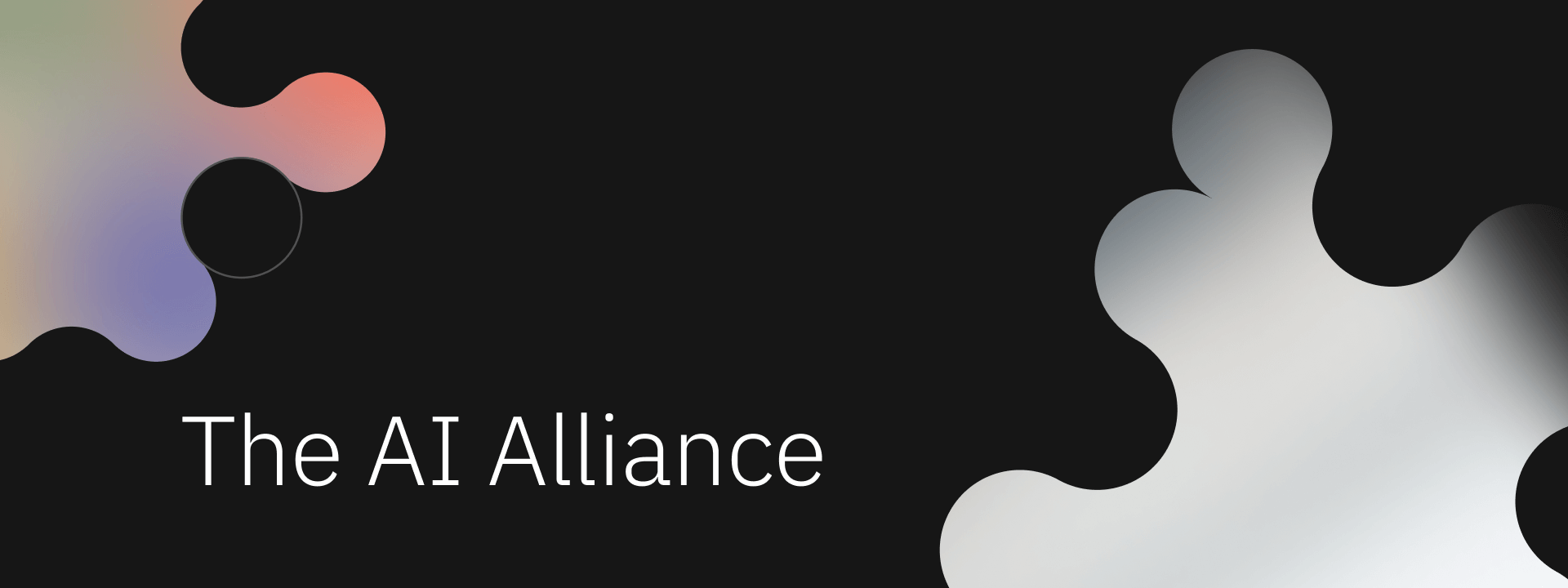Among the other organizations that joined the initiative: AMD, DELL, Oracle, NASA, Yale University, Cornell University, Berkeley University, Linux Foundation, Cleveland Clinic, Hugging Face, Stability AI and more

Today, December 5, Meta, IBM and more than 50 leading technology companies, government organizations, research institutes, academic institutions and international bodies are announcing a new global initiative for the development of open, responsible and safe artificial intelligence called the AI Alliance. Among the other organizations that have joined the initiative are Intel, Intel, Oracle, AMD, DELL, NASA, the CERN Institute, Yale University, the Hebrew University of Jerusalem, Cornell University, Berkeley University, Cleveland Clinic, Hugging Face, Stability AI and more (the full list of organizations is below ).
The AI Alliance was established to be a comprehensive body, formulating policy and promoting activity, to shape the development of artificial intelligence in ways that better reflect the complex needs of human society in its various shades. The initiative will foster a global, open and enabling community for developers, researchers, and decision makers, with the aim of accelerating responsible innovation in artificial intelligence, while ensuring rigorous scientific research, trust and transparency, safety, diversity and economic competitiveness.
The companies and organizations partnering with the initiative will promote, among other things, projects to formulate standards, tools and other resources that will enable the development of safe and responsible artificial intelligence and its responsible use. They will also develop metrics and evaluation standards for open AI models, and how they are deployed in various applications.
The organizations will promote an ecosystem of open foundation models with diverse characteristics, as well as an ecosystem to accelerate the development of hardware for artificial intelligence. They will support the building of artificial intelligence skills through global education and research initiatives, develop educational content and resources to enrich the public discourse on artificial intelligence and inform policymakers about the benefits, risks, solutions and precise regulation for the age of artificial intelligence.
They will also launch initiatives that encourage open source AI development in safe and beneficial ways, and show how initiative members are using open AI technology responsibly and for good.
In a joint statement, the organizations and companies partnering in the initiative write that they believe that the progress of artificial intelligence holds new opportunities for improving the way we work, live, learn and communicate with each other. They emphasize that open and transparent innovation is essential to empower a broad spectrum of researchers, developers and implementers of artificial intelligence, with the information and tools needed to harness the technology in a way that ensures safety, diversity and beneficial economic opportunities for all. "Collaboration and information will help this community, of companies, researchers, governments and organizations, to innovate faster and more inclusively, identify specific risks and reduce them before releasing a product to the world."
Arvind Krishna, Chairman and CEO of IBM: "The progress we continue to see in artificial intelligence is a testament to innovation and open collaboration between communities of creators, scientists, academics and leaders in the business world. This is a key moment in defining the future of artificial intelligence. IBM is proud to partner with like-minded organizations through the AI Alliance to ensure that this open ecosystem drives an innovative AI agenda rooted in safety, accountability and scientific rigor."
Nick Clegg, Meta's President of Global Affairs: "We believe that it is better when artificial intelligence is developed openly - more people can access its benefits, build innovative products using it and work on safety. AI Alliance brings together researchers, developers and companies to share tools and knowledge that can help us all move forward, whether models are openly shared or not. We look forward to working with partners to promote advanced technology in artificial intelligence and help everyone build responsibly."
IBM and Meta are proud to co-launch the AI Alliance with leading organizations across industry, government and academia. Partners and collaborators include:
- A*STAR
- Automatic
- AMD
- Anyscale
- Cerebras
- CERN
- Cleveland Clinic
- Cornell University
- Dartmouth College
- Dell Technologies
- Ecole Polytechnique Federale de Lausanne
- ETH Zurich
- fast.ai
- Fenrir, Inc.
- ftp extension
- Hebrew University
- hugging face
- IBM
- Imperial College London
- Indian Institute of Technology Bombay
- Abdus Salam International Center for Theoretical Physics (ICTP)
- Institute for Computer Science, Artificial Intelligence
- Intel
- Keio University
- LangChain
- CallIndex
- Linux Foundation
- Mass Open Cloud Alliance, operated by Boston University and Harvard
- Meta
- Mohamed bin Zayed University of Artificial Intelligence
- MLCommons
- National Aeronautics and Space Administration
- National Science Foundation
- NumFOCUS
- Oracle
- Quansight
- Red Hat
- Rensselaer Polytechnic Institute
- Roadzen
- Sakana AI
- ServiceNow
- Simons Foundation
- Sony Group
- AI stability
- Together AI
- TU Munich
- UC Berkeley College of Computing, Data Science, and Society
- University of Illinois Urbana-Champagne
- The University of Notre Dame
- The University of Texas at Austin
- The University of Tokyo
- Yale University

One response
I'm sure the Chinese, Russians and Iranians would be happy to cooperate. Also, I am sure that all the other people of the world will not abuse the knowledge regarding the establishment of neural networks and their training and the computing power that is going to be on their desktops in just 10 years (and on the equivalent of smartphones in 20 years).
It will surely succeed, although Asimov has already demonstrated how it is not.